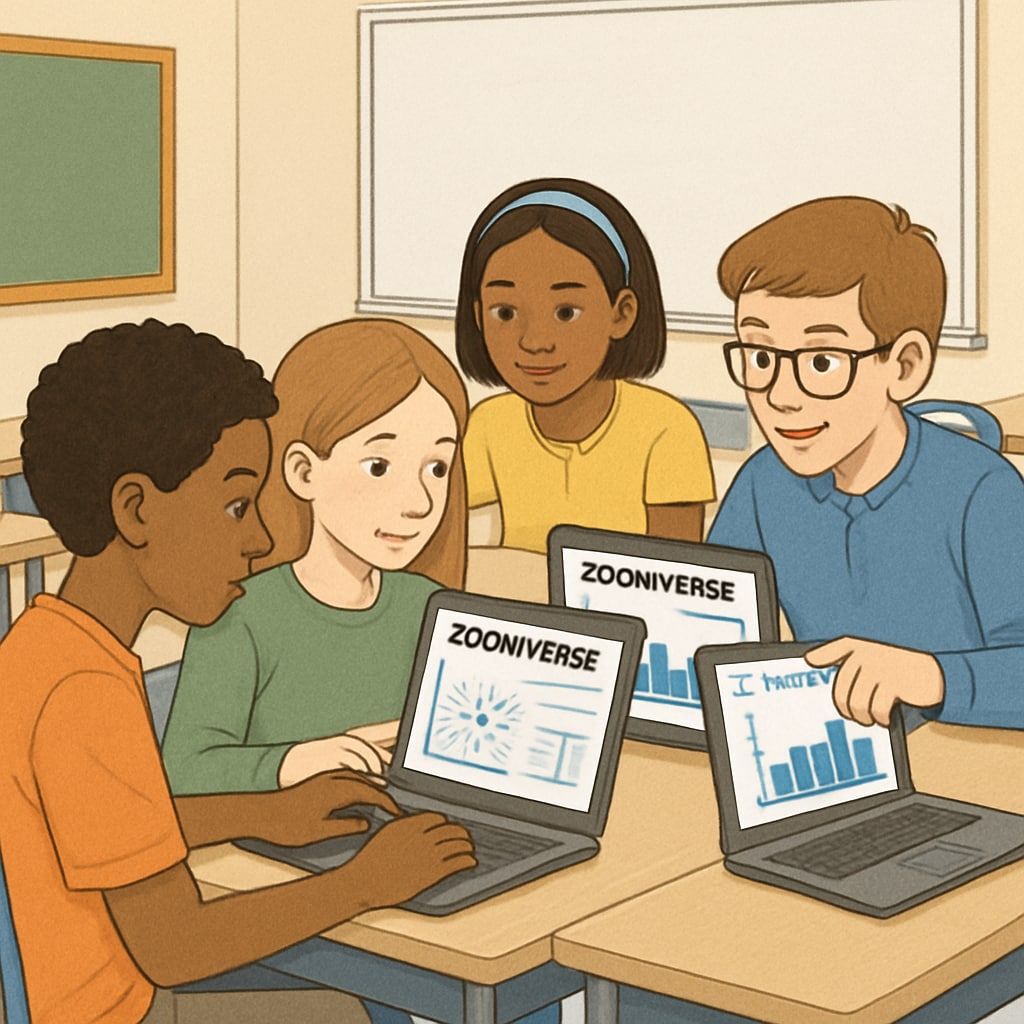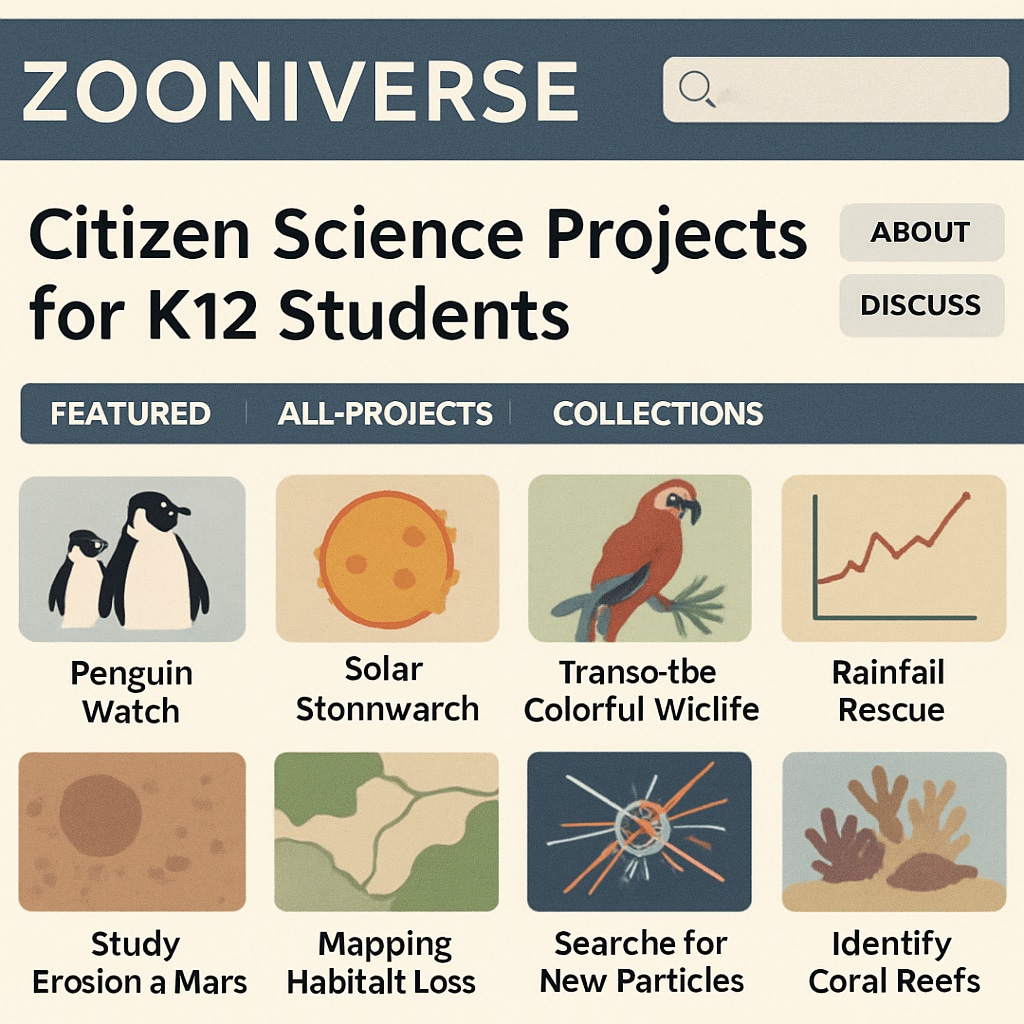Citizen science, Zooniverse, and scientific projects provide an exceptional platform for K12 students to immerse themselves in real-world scientific research. Zooniverse, the world’s largest and most popular citizen science platform, connects students with thousands of projects across diverse disciplines, such as astronomy, biology, climate science, and history. By engaging with these projects, students develop critical thinking skills, scientific literacy, and a sense of global collaboration. This article explores how educators can leverage Zooniverse to enrich K12 learning and inspire future scientists.

What is Zooniverse and How Does It Support Citizen Science?
Zooniverse is an online platform that enables anyone, regardless of their scientific background, to contribute to cutting-edge research. It hosts a variety of citizen science projects where participants can assist researchers by categorizing images, transcribing historical documents, observing wildlife patterns, and much more. For K12 students, Zooniverse offers an accessible entry point into scientific exploration, allowing them to see firsthand how data is collected, analyzed, and used to advance knowledge.
In addition, Zooniverse provides educational tools and resources to help teachers integrate its projects into their curricula. This platform is particularly effective for STEM (Science, Technology, Engineering, and Mathematics) education, offering hands-on activities that align with classroom learning objectives.
Benefits of Integrating Citizen Science Projects into K12 Education
Incorporating Zooniverse projects into K12 education comes with numerous benefits:
- Enhanced Critical Thinking: Students learn to analyze data, identify patterns, and draw conclusions, sharpening their analytical skills.
- Real-World Application: Participating in active research helps students connect theoretical concepts to practical scenarios.
- Global Collaboration: Many Zooniverse projects involve contributors from around the world, fostering a sense of teamwork and shared purpose.
- Inspiration for STEM Careers: Exposure to diverse scientific fields can ignite interest in pursuing careers in STEM.
For example, students participating in the Galaxy Zoo project—a Zooniverse initiative focused on classifying galaxy shapes—gain insight into astronomy and data analysis. They can also contribute to historical studies through projects like “Operation War Diary,” where participants digitize World War I records.

How Educators Can Utilize Zooniverse in the Classroom
Integrating Zooniverse into classroom activities is straightforward and highly effective. Here are practical steps educators can take:
- Select Age-Appropriate Projects: Explore the Zooniverse platform to find projects suitable for the age group and learning goals of your students.
- Begin with Guided Exploration: Provide an introduction to the platform and demonstrate how to navigate projects.
- Incorporate Collaborative Activities: Encourage students to work in teams to analyze data and discuss findings.
- Connect to Curriculum: Align project themes with topics taught in class, such as ecosystems, space science, or historical events.
- Reflect and Share: Have students present their contributions and reflect on their learning experiences.
By using Zooniverse, educators can create a dynamic learning environment that bridges the gap between classroom lessons and real-world scientific challenges.
Inspiring the Next Generation of Scientists
The impact of Zooniverse on K12 students goes beyond academic growth. It nurtures curiosity, resilience, and a deeper appreciation for science. Students who engage with citizen science projects often develop a lifelong interest in research and discovery. This is particularly important in today’s rapidly evolving world, where scientific literacy and critical thinking are essential skills.
As a result, platforms like Zooniverse play a vital role in shaping the next generation of scientists, innovators, and problem-solvers. By participating in these projects, students gain not only knowledge but also the confidence to tackle complex global challenges.
In conclusion, Zooniverse offers K12 students a unique opportunity to contribute to real scientific endeavors while developing skills that are crucial for their future. Educators who integrate these citizen science projects into their teaching practices can inspire students to explore the wonders of science and unlock their potential as future leaders in STEM fields.


